Humanised dogs: why your dog should remain a dog
Over-humanising your pet can lead to behavioural problems
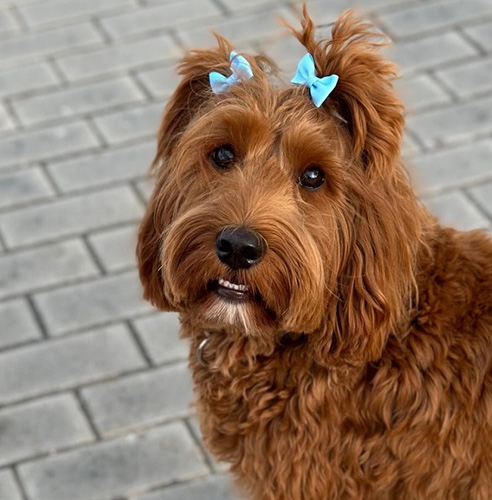
THE RELATIONSHIP BETWEEN DOGS AND PEOPLE
Approximate reading time: 6 minutes
The relationship between dogs and humans has existed for thousands of years. However, the role of these animals in people's lives has changed over time. While in the past dogs served humans in tasks such as farming or hunting, they gradually became a member of the family thanks to their loyalty and affection. Nowadays, several scientific studies confirm the deep bond between people and dogs, and on a social level, there are more and more laws that protect these adorable animals as sentient beings with their own rights.
A human being's relationship with their dog can be so special and intense that their feelings for their dog can be equal to those they have for other loved ones. It is not for nothing that for many people their dogs are ‘their children’, such is the love and responsibility they feel towards them. However, this should never lead us to humanise dogs, i.e. to attribute human emotions, behaviour or conduct to them to the detriment of their own nature. Treating your dog like a baby or a child, denying their natural instincts, can cause various behavioural disorders.
Table of contents
- Behaviours that humanise your dog
- Consequences of humanising a dog
- How to give love to your dog without humanising them
Behaviours that humanise your dog

One of the problems of over-humanising dogs is that, behind these behaviours, there is generally no bad intention, but quite the opposite. Due to lack of knowledge or the person's own needs, the dog ends up being treated as if they were human, creating great frustration in not being able to be as they really are. These are some of the behaviours that humanise dogs and that, unfortunately, abound today in social networks, creating an inappropriate example of how these animals should be treated.
- Disguise your dog.
- Dressing your dog in clothes that are not necessary.
- Taking them out in a pram instead of letting them walk.
- Teach them to relieve themself in the toilet so you don't have to take them out.
- Do not allow them to socialise with other dogs.
- Do not let them get dirty under any circumstances.
- Always carry them in your arms or in a bag.
- Believing that they are acting out of human emotions such as jealousy, envy or revenge, instead of understanding the reasons for their behaviour.
- Giving your dog a thousand beauty and grooming treatments.
- Sitting them down to eat at the table.
Consequences of humanising a dog
When you force a dog to behave like a person, you are eliminating all their natural instincts, their real way of communicating and behaving. Obviously, this can be very destructive for your pet.
-
Behavioural problems

Imagine having to behave 24 hours a day in a way that doesn't come naturally to you. This is what happens to over-humanised dogs, who develop anxiety and stress that can lead to destructive and even aggressive behaviour in some cases.
-
Confusing hierarchy
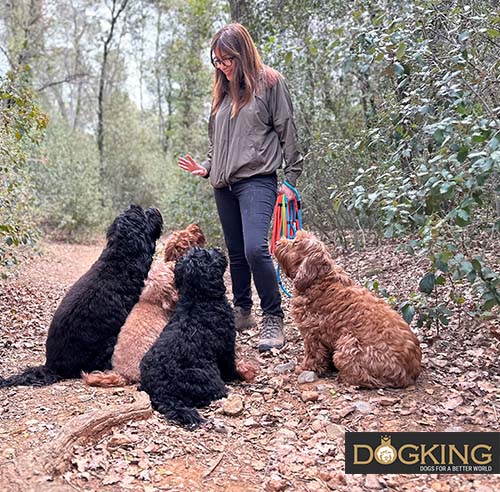
Often, humanising dogs involves over-indulging them. No, we are not talking about giving them love and affection, but letting them do whatever they want, without setting limits or working on regulating their behaviour and emotions. This is irresponsible on the part of any caregiver, because if the dog does not have a reliable and firm guide, they will be very confused about the hierarchy and will not know what is expected of them. This could even lead to resource protection behaviour. The importance of good education and training should not be forgotten.
-
Hyper-attachment and separation stress
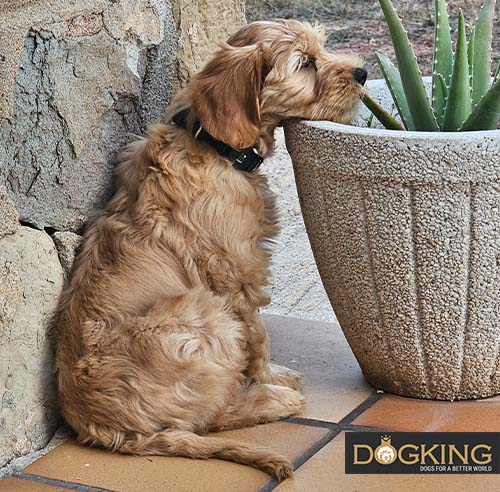
If you do not let your dog socialise with other dogs, take them everywhere with you and they do not learn to manage loneliness, they will develop an unhealthy attachment to you, creating separation stress that could lead to depression and destructive behaviour at home when they are left alone. It's normal to want to enjoy time with your dog, but you need to teach them to be calm when they are left alone, otherwise they will be a hyper-dependent pet and their mental health will suffer.
-
Frustration and anxiety
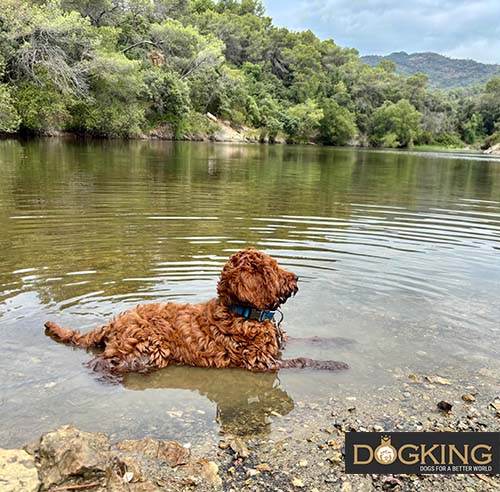
A dog that is constantly denied their nature will be stressed, nervous, depressed and frustrated. If you want your dog to be happy, you must allow them to obey their inner nature, i.e. let them run, sniff, step on the ground, meet other dogs, get dirty, jump... In addition, it is your responsibility to learn about their way of communicating in order to know and satisfy their needs, give your dog what they really need: exercise, socialisation, stimulation and lots of love.
-
Poor socialisation

Another consequence of humanising dogs is poor socialisation. If you don't let your pet be exposed to all kinds of situations, people and other animals, they will become fearful, insecure and most likely have problems with other dogs. A dog that does not socialise with other dogs will not understand their communicative codes and may react negatively to situations that are totally natural in the interaction between two dogs.
-
Obesity
Unfortunately, we all have in our minds the image of the typical small dog that is always on its owner's lap and, obviously, suffers from obesity. This extreme degree of being overweight is a risk factor for many canine diseases, and is the consequence of a humanised dog that we do not allow to exercise, run and, in short, give free rein to their energy.
How to give your dog love without humanising them
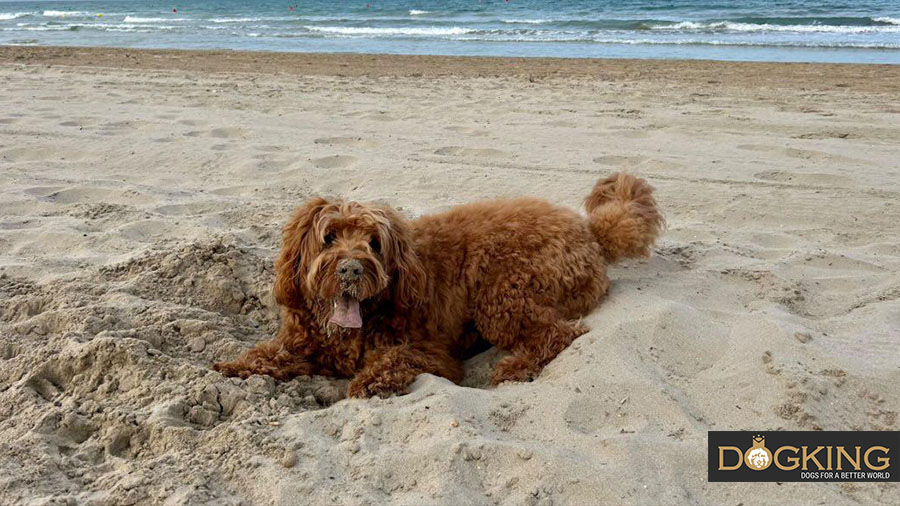
You may be wondering how you can pamper and show love to your furry friend without indulging in humanising behaviour, which is so negative for dogs. Not treating your dog like a person doesn't mean you can't be affectionate with them or nurture that special bond you share. Quite the opposite! You can be as loving as you like with your pet, but don't forget that they also need discipline and exercise to maintain the right balance. Also, don't forget that, even if they live with humans, your dog belongs to another species with their own characteristics and attributes.
If you know and respect your dog's true nature, you can treat them exactly as they need to be treated, and they will feel much happier and fulfilled. In short, let your dog be a dog with all that that implies: let them get dirty, let them communicate in their own way, let them see other dogs... And continue to enjoy the love and loyalty of your furry one!